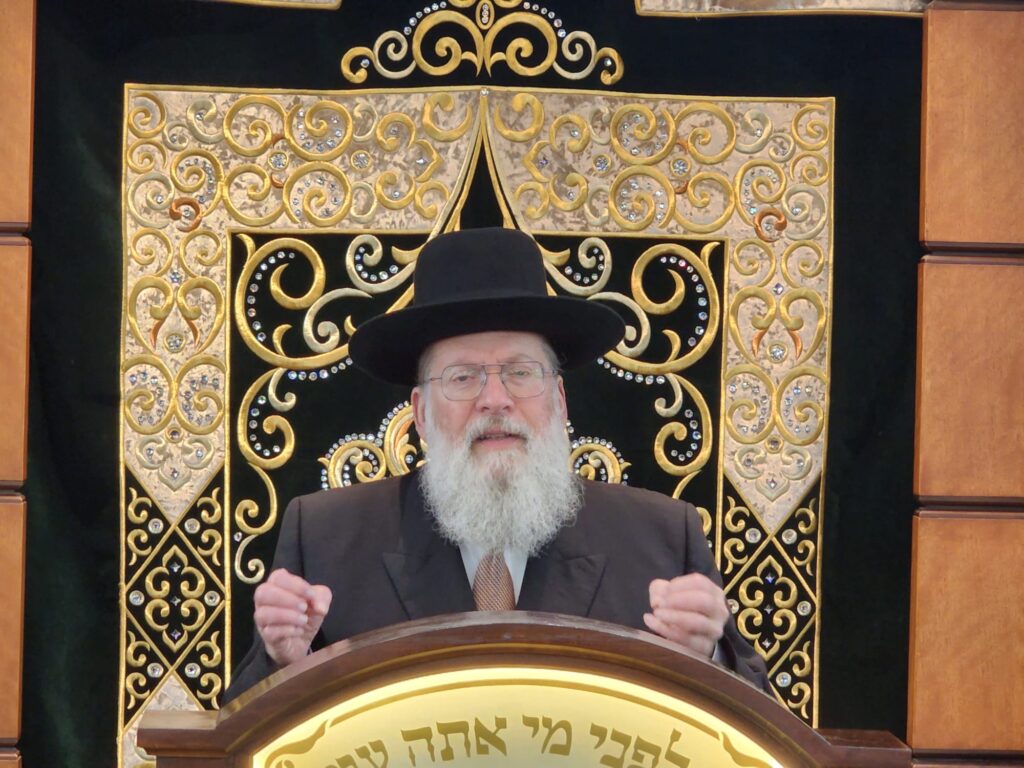When Words Betray Our Story
We were frustratingly so close—just days away—from entering the Land of Israel and launching the golden age of Jewish history. We stood merely a three-day journey away from our destiny before everything unraveled.
Though we stumbled in several areas, one of our central failures was our misuse of language. Petty complaints and grumbling about desert conditions escalated into slander against Moshe Rabbeinu, which soon deteriorated into defamation of Eretz Yisrael itself. We must not speak with moral integrity, but with ideological clarity.
This past week, two public statements by Torah personalities were deeply unsettling. To write about the sanctity of language while fueling further division would be both hypocritical and counterproductive. For this reason, I will not mention names, but I will address the substance of their remarks.
One rabbi recently declared that he does not pray for the release of our hostages; because, in his view, many of them did not live halachic lives. He specifically singled out those abducted from the Nova music festival, arguing that their participation in such an event on a sacred Jewish chag such as Simchat Torahdisqualified them from his tefillot.
This sentiment is deeply troubling on a moral level and was met with swift, unequivocal rejection by a broad consensus, including from within his own rabbinic circle. The hostages and their families are living a nightmare beyond words. We pray for every Jew in anguish, not because they are observant, but because they are ours. They are part of us. They are in pain. They need mercy. They certainly do not need judgement or condemnation.
But this statement is not only morally offensive, it is also ideologically misguided. The Rambam (Hilchot Melachim 7:15) teaches that every Jewish war is waged to uphold the honor of Hashem. Any assault on a Jew is, by extension, an affront to Hashem’s honor—for we are His people. All the more so, an attack on Jews living in Eretz Yisrael is an assault on Hashem’s prophecies and promises.
Choosing to live in Eretz Yisrael is a declaration of belonging to Hashem’s people and His promised land. We pray for the hostages and we mourn the victims of October 7th, not merely out of compassion, but because their suffering resonates with Divine consequence. Every Jew, and certainly every Israeli, is woven into the unfolding story of Hashem’s promise and presence on this earth whether they realize it or not. Their pain carries sanctity, not despite their lifestyle, but because of where their story is being lived.
The second troubling comment this week concerned MK Yuli Edelstein, chair of the Knesset’s Foreign Affairs and Defense Committee, who has spent months crafting a possible solution to the painful and divisive challenge of Charedi non-enlistment, a dilemma that is fraying the fabric of our society. This is an excruciatingly complex problem with no golden solution. Any path forward will require Gedolei Torah to come to an agreement. Edelstein has demanded tough sanctions on yeshiva students who evade military service.
A prominent rabbi who is opposed to these efforts referred to Yuli in indelicate terms. He also claimed that Edelstein’s presence in Israel (he’s an immigrant from Russia) has only deepened the current crisis.
Disagreement is inevitable—and even healthy—but it need not descend into infighting. The challenge of Charedi enlistment would exist with or without Edelstein. Furthermore, Yuli is observant; it is likely that a non-observant committee chair would be far less sympathetic to Charedi concerns.
One of the few national narratives that still unites Israelis across ideological lines is the vision of kibbutz galuyot—the ingathering of exiles. One of the foundations of the State of Israel is as a homeland for every Jew from every corner of the globe who longs to return. Israel is not just a state; it’s a home for every Jew from every corner of the world. We devote enormous resources to facilitate this return as a fulfillment of our national mission.
If there is a singular success story of kibbutz galuyot, it is the return of Soviet Jewry. For decades, Jews behind the Iron Curtain endured relentless repression. For several generations, their Jewish identity was strangled, reduced to a faint and fragile echo, barely recognizable to themselves.
Everything began to shift in the aftermath of the Six-Day War which ignited the Prisoners of Zion or refusenik movement, as courageous Jews refused to submit to the Soviet regime. They endured imprisonment, harassment, and exile, not for any crime, but for their longing to return to the Jewish homeland. Natan Sharansky and other brave souls carried the torch of Zion and Israel and the vision of kibbutz galuyot under the harshest of conditions. When Edelstein was indicted on fabricated charges, he was sentenced to three years in a Siberian prison, but remained undeterred, steadfast in his dream of kibbutz galuyot.
This movement, and the courage of the refuseniks, eventually broke open the iron gates, allowing a flood of Jews to return to Israel. As a teenager, I remember standing outside the United Nations in New York at annual protests, demanding freedom for those imprisoned by the Soviet regime. In 1987, while studying at Yeshivat Har Etzion/Gush, I recall fasting together with the entire yeshiva and the community of Alon Shevut on behalf of Yuli, sending him strength and hope to his Russian prison cell. Just a few months later, he was released and soon after, remarkably, he joined us in yeshiva, studying Torah at our side. It was a moment that etched in me the profound sense that kibbutz galuyot was no longer a distant dream, but unfolding before our very eyes.
Due to the courage of the refuseniks, the years that followed witnessed the emigration of over a million Jews from the Soviet Union to Israel, transforming the fabric of Israeli society. Many arrived with education, culture, and professional skills, fueling one of the most significant economic and social booms in Israel’s modern history.
Sharansky and all the other prisoners of Zion stand as enduring symbols of a dramatic milestone in the great drama of kibbutz galuyot. Their emigration fulfilled the hopes and prayers of Jews across Israel—that even in the face of persecution and oppression, no Jew would remain trapped forever. Every Jew, no matter how distant or embattled, would one day find his way home.
We must be exceptionally delicate in our speech—careful to uphold moral integrity, and even more so, to avoid clouding or distorting our historical narratives. These narratives are too profound and too hard-won to be dismissed or diminished. nRabbi Moshe Taragin is a rabbi at the hesder pre-military Yeshivat Har Etzion/Gush, was ordained by YU and has an MA in English literature from CUNY. His most recent books include “Reclaiming Redemption: Deciphering the Maze of Jewish History” (Mosaica Press) and “To be Holy but Human: Reflections on my Rebbe HaRav Yehuda Amital” (Kodesh) are available in bookstores and at MTaraginBooks.com














